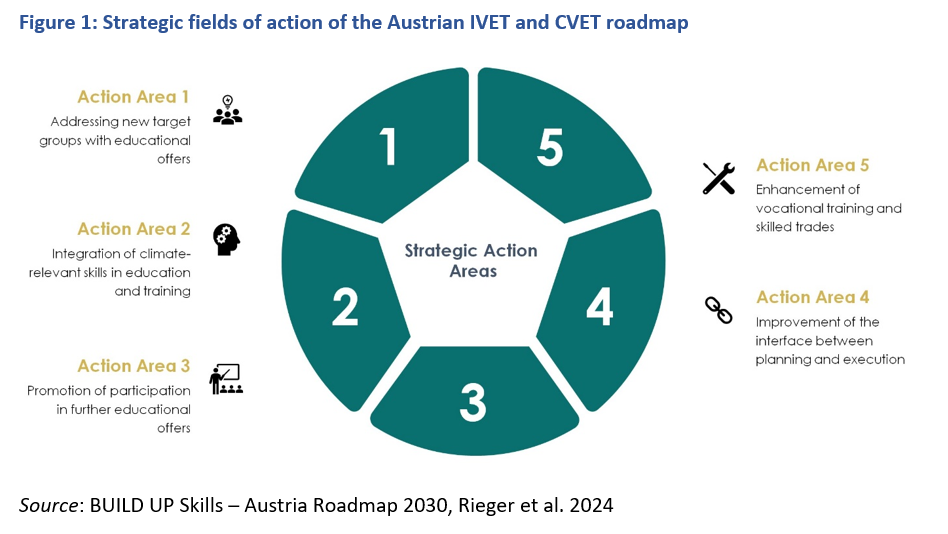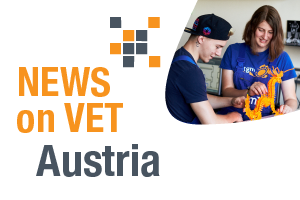In March 2024, the national initial and continuing education and training roadmap for a climate-neutral building sector in Austria by 2030 was presented. It was developed as part of the EU project ReBUSk (Reboot BUILD UP Skills), aiming to ensure that all the skills required to achieve the energy and climate targets in the building sector will be available by 2030.
Five strategic fields of action for IVET and CVET
The building sector plays a major role in achieving the energy and climate policy goals of Austria and the EU. It is responsible for almost one third of the energy consumption and for 17% of greenhouse gas emissions in Austria, not including ‘grey emissions’ from the production of building materials. Greening the building sector requires a sufficient number of well-qualified skilled workers with the necessary skills. A roadmap was developed as part of the ReBUSk project – funded by the EU LIFE programme – to ensure that these will be available by 2030. It shows five strategic fields of action for the initial and continuing education and training (IVET and CVET) with measures to overcome the barriers and skills deficits identified in the various building professions (Figure 1).

Incorporating skills of relevance for the climate in VET programmes
As part of a comprehensive status quo analysis, 70 occupational profiles were identified that contribute directly to achieving the energy and climate targets in the building sector. An analysis of the curricula, training regulations and course descriptions of related IVET and CVET programmes showed that the following skills of relevance for the climate are already partly incorporated in the curricula:
- improving the energy efficiency and use of renewable energies in buildings; and
- studying and optimising greenhouse gas emissions.
- These skills are currently also increasingly being considered when updating the curricula.
However, skills that contribute to enhancing the resource efficiency, recyclability and decarbonisation of existing buildings (e.g. thermal and energy-efficient refurbishment), for example, are still hardly taught. The roadmap therefore aims to anchor all skills of relevance for the climate as a central field of action across all qualification levels in all initial and continuing education and training programmes.
More than 65 declarations of support from stakeholders
A key element in the development and implementation of the roadmap is the intensive involvement of all relevant stakeholders. From the start of the project in October 2022, the project consortium involved representatives from ministries, educational institutions, companies, sectors as well as interest groups, etc. In conferences, workshops and bilateral discussions, their expertise, experience and interests were pooled and integrated into the roadmap. The broad acceptance and commitment of the stakeholders is evident from the more than 65 declarations of support for the roadmap. They strengthen its sustainability and are expected to contribute significantly to the implementation of the measures proposed.
Read more
- REBUSk project page
- Rieger, K. et al. (2024). ReBUSk BUILD UP Skills – Austria national roadmap 2030
- Ipser, Ch. et al. (2023). BUILD UP Skills – Austria: analysis on the national status quo education and training for achieving the energy and climate targets in the Austrian building sector
| Please cite this news item as: ReferNet Austria; Cedefop (2024). Austria: VET roadmap for a climate-friendly building sector. National news on VET |

